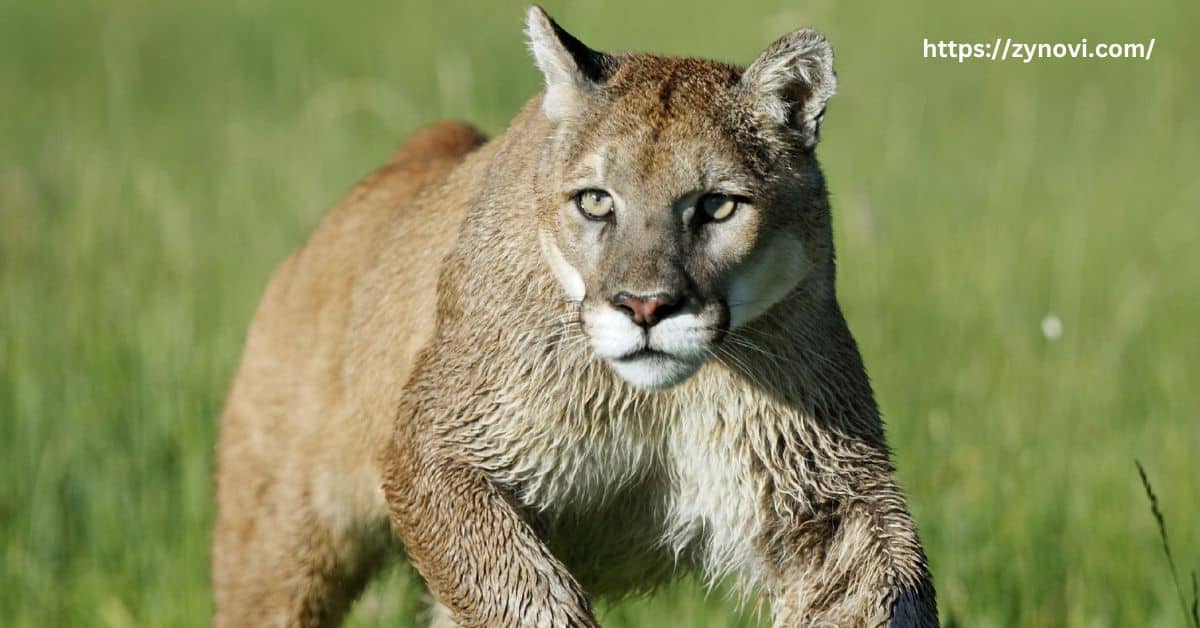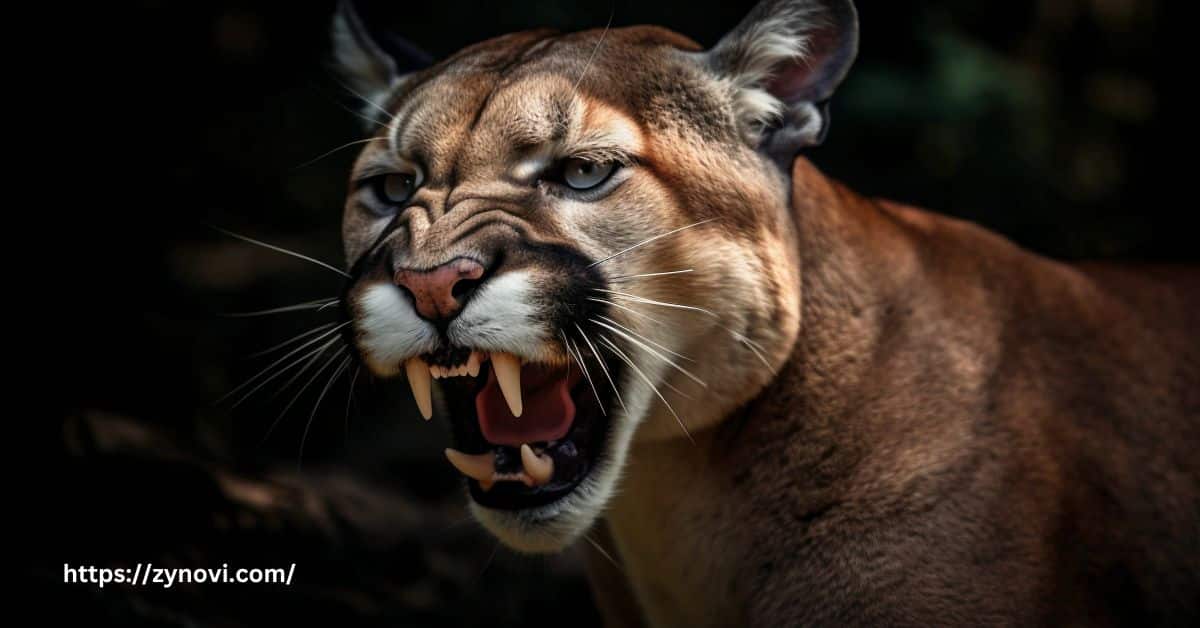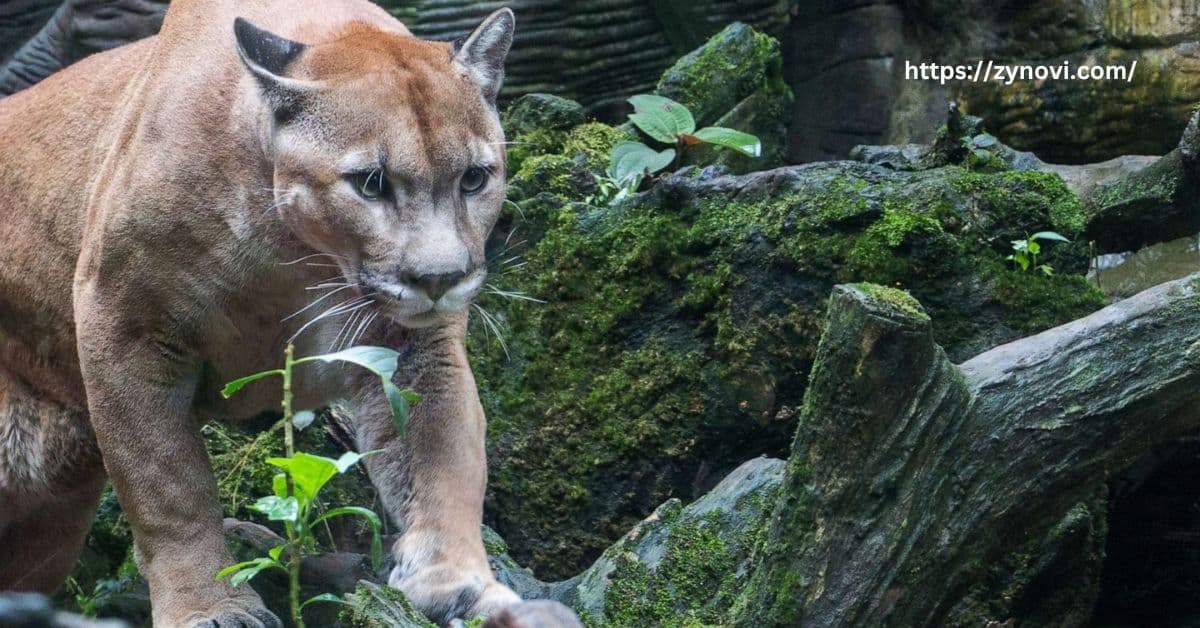Do cougars attack humans? Cougars rarely attack humans, and such incidents are as a result of like territorial defense or mistaken identity.
It’s a question that often sparks fear and curiosity, especially for those who venture into the wild. These majestic creatures, known for their strength and agility, rarely target humans, but their encounters with us can be alarming.
If you enjoy outdoor adventures or live in cougar-prone areas, this article is a must-read. We’ll find out the cougar behavior, the risk of attacks, and, most importantly, how to protect yourself and coexist peacefully with these apex predators. Keep reading to stay informed and confident in the wild!
Understanding Cougars
What Are Cougars?
Cougars (Puma concolor) are large, solitary cats found across North and South America. Cougars, also known as mountain lions, pumas, and panthers, are elusive apex predators native to the Americas. Their sleek agility and hunting prowess have long captivated human curiosity.
| Characteristic | Details |
|---|---|
| Size | Fourth largest wild cat globally |
| Weight | Adults range between 100 and 180 pounds |
| Length | Measure up to 8 feet from nose to tail |
| Communication | Cannot roar; communicate through hisses, growls, and purring |
| Alternate Names | Mountain lion, puma, panther |
| Habitat Adaptability | Thrive in diverse habitats, from Canadian forests to the Andes in South America |
Habitat and Range
Cougars are remarkably versatile and inhabit a wide range of environments. These include forests, deserts, grasslands, and mountains.
Their range extends from British Columbia, Yukon, and Alberta in Canada to Florida, California, and Idaho in the United States, and even further into South America.
As urban development encroaches on wilderness areas, cougars are increasingly forced to venture closer to human settlements, creating potential for human-wildlife interactions.
As urban areas encroach on wilderness, cougars increasingly venture closer to human settlements.
Diet and Hunting Behavior
As apex predators, cougars exhibit a diet that reflects their hunting prowess:
- Deer: A primary source of sustenance, deer populations are crucial to cougar survival.
- Elk: These larger animals provide a substantial meal, though they require significant effort to take down.
- Bighorn Sheep: Found in mountainous terrains, they are a challenging but rewarding prey for cougars.
- Smaller Prey: Cougars often hunt rabbits, raccoons, and other small animals to supplement their diet.
- Livestock and Pets: In areas near human settlements, cougars may prey on livestock or pets, leading to conflicts.
Cougars employ stealth and precision when stalking their prey. Their crepuscular activity (active during dawn and dusk) aligns with prey movement patterns, enhancing their hunting success. They rely on a swift pounce and typically aim for the neck or head to ensure a quick and efficient kill.
Examining Cougar Attacks on Humans

Historical Context
Do Cougars Attack Humans? Cougar attacks on humans are exceedingly rare, showcasing the typically elusive nature of these apex predators.
Over the past century, fewer than 30 fatal attacks have been recorded in the U.S. and Canada, as reported by the Washington Department of Fish and Wildlife.
These incidents are minimal compared to the far higher rates of attacks by bears, snakes, or even domestic dogs, emphasizing that cougars generally avoid human interactions.
Modern Statistics on Cougar Attacks
Each year, fewer than 25 cougar attacks are reported across North America, a testament to their generally reclusive nature.
Most incidents involve non-fatal encounters, with cougars retreating after initial contact. However, as human activity continues to expand into wilderness areas, the frequency of such encounters has slightly increased.
These statistics highlight the importance of understanding and respecting cougar behavior to minimize risks during outdoor activities.
Notable Case Studies
- British Columbia, 2019: A jogger successfully defended themselves from a cougar attack by using bear spray and throwing nearby rocks. The quick response and use of available tools were key to their survival.
- California, 2021: In a terrifying incident, a child was attacked by a cougar but was rescued by their mother. The mother’s courageous act of scaring the animal away prevented a potentially tragic outcome.
- Florida, 2022: A rare sighting of a cougar near a suburban neighborhood prompted authorities to implement heightened safety measures. This incident emphasized the growing overlap between human and wildlife territories.
Each of these cases highlights the critical role of preparedness, resourcefulness, and quick thinking during encounters with cougars.
Why Cougars Attack Humans
Defensive Behavior
Cougars are highly territorial creatures, fiercely protective of their domain. They may perceive humans as threats, particularly if individuals venture too close to their cubs or recent kills. This defensive behavior often stems from their need to safeguard their young and food sources. Understanding these triggers can help prevent encounters from escalating into dangerous situations.
Mistaken Identity
Joggers, cyclists, and children often unintentionally mimic the behavior of prey through quick, erratic movements. Such actions can activate a cougar’s predatory instincts, potentially leading to attacks.
These situations highlight the importance of moving calmly and avoiding sudden actions in areas where cougars are present to reduce the likelihood of being perceived as prey.
Hunger and Desperation
Cougars are opportunistic predators, and during periods of starvation or desperation, they may target livestock, pets, or, in rare cases, humans.
These instances often occur during harsh winters or when prey populations decline. The loss of natural habitat due to deforestation and human expansion has further exacerbated these situations, pushing cougars closer to human settlements in search of food.
Human Encroachment on Cougar Territory
Urban sprawl and expanding infrastructure into cougar habitats significantly increase the likelihood of human-wildlife conflicts. As cougars lose their traditional ranges, they are forced to adapt by venturing into suburban and urban areas.
This encroachment not only disrupts their natural behaviors but also heightens the risk of encounters with humans, pets, and livestock, leading to more frequent conflicts and challenges for wildlife management efforts.
Staying Safe in Cougar Territory

Preventing Cougar Encounters
To minimize risks while hiking or camping:
- Avoid hiking during dawn and dusk: Cougars are crepuscular predators, meaning they’re most active during these times. Plan activities for daylight hours to reduce the chances of crossing paths with one.
- Travel in groups: Cougars are less likely to approach larger groups, as they prefer to target isolated or smaller individuals. Staying together reduces vulnerability.
- Keep children and pets close: Quick, erratic movements from children or pets can mimic prey, triggering a cougar’s hunting instincts. Always maintain close supervision.
- Store food securely: Improperly stored food can attract wildlife, including prey species that cougars hunt. Use bear-proof containers or hang food out of reach.
These steps can significantly reduce the likelihood of a dangerous encounter with a cougar.
How to Stay Safe If You Encounter a Cougar
Follow these steps to stay safe during a cougar encounter:
- Stay calm and maintain eye contact: Avoid sudden movements or panic. Direct eye contact signals that you are aware of the cougar, reducing its confidence to attack.
- Make yourself appear larger: Raise your arms, open your jacket, or hold an object above your head to look intimidating. Cougars are less likely to engage if they perceive you as a threat.
- Speak firmly and back away slowly: Use a confident tone to assert dominance, while moving backward at a steady pace. Never turn your back or run, as this could trigger a chase.
- Pick up children: Prevent children from running or appearing vulnerable by holding them close. This also allows you to focus on managing the encounter effectively.
Taking these actions can significantly reduce the likelihood of an attack and encourage the cougar to retreat.
Safety Tips for Outdoor Enthusiasts
Here are the revised safety tips for outdoor enthusiasts with expanded details:
- Carry bear spray, rocks, or sticks as potential deterrents: Bear spray is a highly effective tool to deter aggressive wildlife. Carry it in an easily accessible spot, such as a holster. If you don’t have bear spray, rocks and sticks can serve as emergency deterrents, although they’re not as reliable.
- Avoid areas with signs of cougar activity, such as tracks, scat, or scratched trees: Stay alert for signs of wildlife in the area. Cougar tracks, scat, or freshly scratched trees are indicators of their presence. If you spot these, consider altering your route to avoid potentially dangerous encounters.
- Use noise-making devices to signal your presence: Cougars and bears are less likely to approach if they hear you coming. Carry a whistle, bear bell, or use your voice to make consistent noise while hiking. This helps alert animals to your presence, giving them a chance to avoid you.
What to Do If Attacked

Do cougars attack humans? If a cougar attacks:
- Fight back aggressively using any available tools: Use whatever is at hand—rocks, sticks, or your backpack—to defend yourself. Be persistent and forceful.
- Aim for the cougar’s eyes and face: Targeting the eyes and face can be the most effective way to deter the cougar. Go for sensitive areas to cause discomfort and dissuade further aggression.
- Protect your head and neck: Shield your head and neck with your arms or any available objects. These areas are vulnerable and should be safeguarded during the attack.
Post-Attack Response
- Seek medical attention immediately for potential injuries or infections: Even minor wounds can become serious, so get medical help quickly to assess injuries and prevent infections.
- Report the incident to local wildlife authorities: Contact wildlife authorities such as the Washington Department of Fish and Wildlife to help track the animal and prevent future incidents.
- Avoid re-entering the area until authorities declare it safe: Stay away from the location until officials have ensured that the area is no longer a danger, as the animal may still be nearby.
FAQs
Can a human fight off a cougar?
Yes, a human can fight off a cougar by defending themselves aggressively, targeting the eyes and face with any available tools or objects.
What to do if you meet a cougar?
Stay calm, maintain eye contact, and back away slowly without turning your back or running, as sudden movements might provoke an attack.
Are cougars aggressive?
Cougars are not naturally aggressive toward humans, but they can become dangerous if they feel threatened, cornered, or are starving.
What to do if a cougar is trying to attack you?
Fight back using any available objects, aim for the face and eyes, and protect your head and neck. Make loud noises to deter the animal.
Conclusion: Do Cougars Attack Humans?
While cougars are certainly capable of attacking humans, such incidents are rare and typically occur due to specific triggers like territorial defense, mistaken identity, or scarcity of food. These apex predators are generally elusive and prefer to avoid humans.
However, understanding cougar behavior and taking essential wildlife safety precautions, such as making noise or carrying deterrents, can significantly reduce the likelihood of an attack. By respecting their role in the ecosystem and recognizing their need for space, we can coexist with cougars safely.










